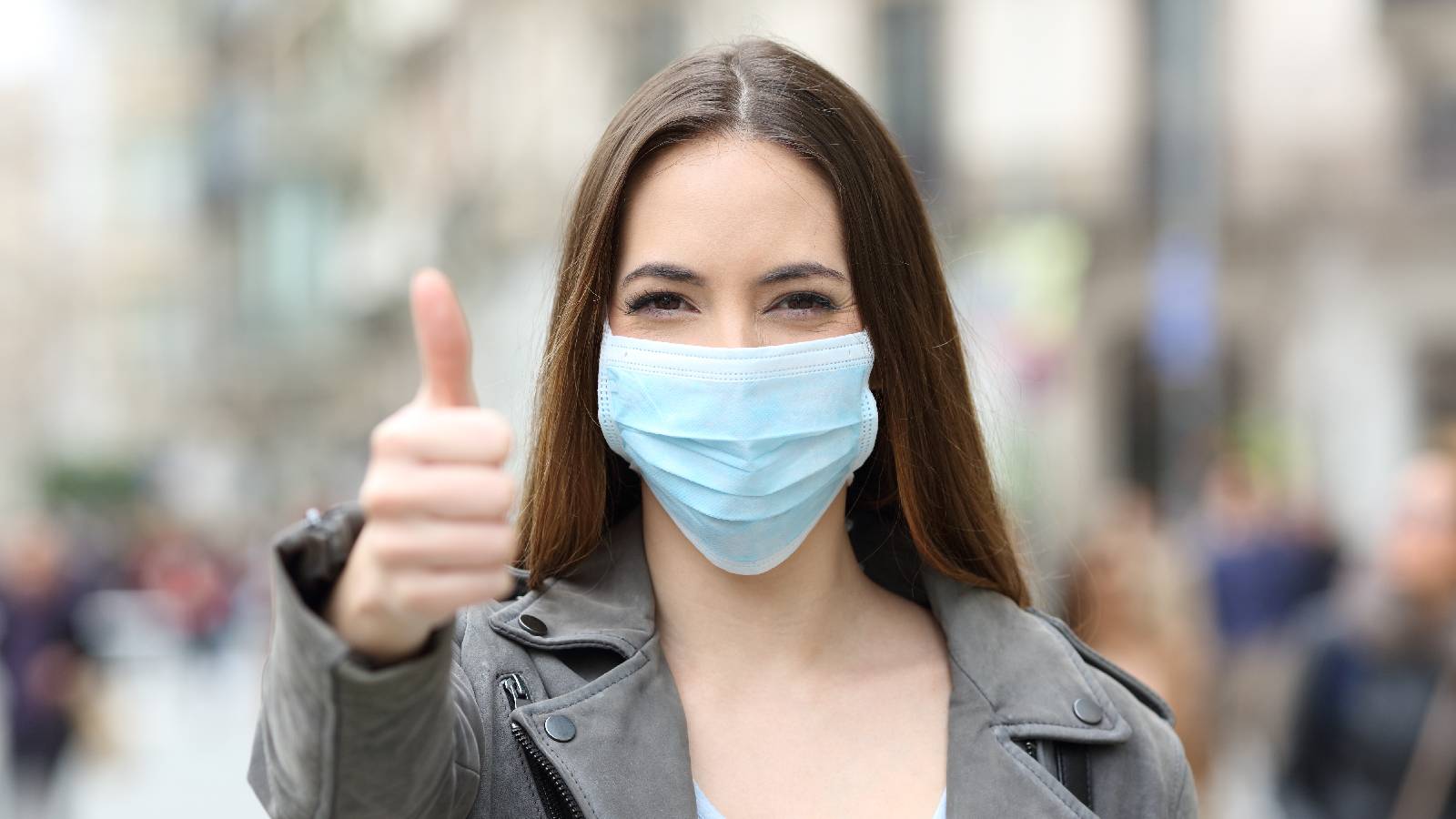Cricketer Travis Head and actress Shilpa Shirodkar have tested positive for Covid-19 amid reports of the virus striking different parts of Asia. Know if the JN.1 variant is something that Indians should be worried about.
Covid-19, the disease caused by SARS-CoV-2, which is a coronavirus, was first identified in 2019. After spreading in December 2019, it became a pandemic disease the following year. Now, it has made a comeback in a few countries in Asia. In the last few weeks, some Asian countries such as Singapore, Hong Kong, China and Thailand reportedly noted a rise in coronavirus cases. And now, there are reports of cricketer Travis Head and actress Shilpa Shirodkar testing positive for Covid-19. As a fresh coronavirus storm is brewing in several Asian nations, we asked an expert if people in India should start taking precautions.
Covid-19 surge in Asia
In the week of April 27 to May 3, 2025, the estimated number of the cases shot up to 14,200 compared to 11,100 cases in the previous week in Singapore, as per the Ministry Of Health Singapore. Similar trends were reportedly seen in China, where the cases had more than doubled in the five weeks leading up to May 4. Infections reportedly emerged in Thailand after the Songkran festival in April 2025. In Hong Kong, around 30 people died due to the virus, according to news reports. The increase in these cases may have to do with factors, including waning population immunity, according to the Ministry Of Health Singapore.

The main variant circulating in Asia
“Covid-19 is an infectious disease that primarily affects the respiratory system and spreads through droplets from coughs, sneezes, or close contact with infected people,” says internal medicine expert Dr Vikram Jeet Singh. Since 2019, the coronavirus has evolved a lot, leading to the emergence of several variants.
“The recent spike in Covid-19 cases in the Asian countries is largely attributed to the spread of the sub-variants of Omicron, particularly the JN.1 and its descendants like LF.7 and NB.1.8,” says the expert. People infected with JN.1, first identified in August 2023, often experience symptoms like fever, dry cough, sore throat and nausea, as per a study published in Therapeutic Advances In Infectious Disease.
“These sub-variants of Covid-19 are highly transmissible, and capable of partially evading immunity from past infections or vaccinations,” says Dr Singh. However, it causes milder illness in most people, especially those who are vaccinated.
Covid-19: Is India at risk?
“The current situation is under control, but India remains at risk,” says the expert. Global travel increases the risk of imported cases, the large population density facilitates faster spread, and immunity might be waning in some sections. “However, India has a strong vaccination base, and the healthcare system in the country is better prepared than in the earlier waves,” assures the expert.
What precautions should be taken to stay safe amid Covid-19 surge?
Here are a few things you can do:
1. Wear masks in crowded places
The Indian government has not made it mandatory for people to wear masks, but you can go for a well-fitted one, such as an N95 or surgical mask. You should particularly wear one while in crowded places like public transport, markets, religious gatherings or hospitals. “These places often have people in close proximity, increasing the risk of airborne transmission of viruses like Covid-19,” says the expert.
2. Maintain hand hygiene
Hand hygiene is one of the simplest yet most effective ways to make sure you don’t get infected. You should regularly wash hands with soap and water for about 20 seconds, especially after peeing or pooping, touching public surfaces like elevator buttons, ATMs, or door handles, and before eating.
3. Avoid crowded spots
If air circulation is limited, avoid the place. “Viruses tend to spread more rapidly in enclosed areas or those that are poorly ventilated areas,” says Dr Singh. When you are indoors with others, make sure the windows or exhausts are open to allow fresh air to circulate.
4. Stay up-to-date with vaccination
Vaccination is an important preventive measure against many diseases, including Covid-19. You should ensure you receive all recommended doses, including booster shots. The XBB.1.5 monovalent booster, a Covid-19 vaccine, may boost protection against the JN.1 variant, according to the World Health Organization.
5. Eat healthy and boost immunity
A well-nourished body means you can fight off infections better. “Have immune-boosting drinks and foods such as seasonal fruits, green leafy vegetables, turmeric, ginger, nuts and tea every day,” suggests the expert. Stay hydrated, get a good night’s sleep and engage in at least 30 minutes of physical activity every day.

6. Use cough etiquette
It’s not just hand hygiene, but also practicing good respiratory hygiene that is important to prevent the spread of infections. “Always cover your mouth and nose with a tissue or use the inside of your elbow whenever you feel like coughing or sneezing,” says the expert. Dispose of the used tissues as soon as you can then wash your hands. This is a very basic and simple habit, which can minimise the spread of germs, especially in offices and public areas where others may get exposed.
As many countries in Asia report Covid-19 cases, make sure to take precautions. Don’t wait for the government to issues guidelines. Start wearing masks, especially if you are out in crowded places and wash hands thoroughly.
Related FAQs
Can you go to work if you have Covid-19?
If you test positive for COVID-19, you should isolate at home until you recover and are no longer contagious. Going to work risks spreading the virus to colleagues and the public.
What are Covid-19 symptoms?
Common symptoms include fever or chills, cough, sore throat, runny or blocked nose, fatigue, headache, loss of taste or smell, body aches, diarrhea or nausea. Breathing difficulty can be experienced in severe cases. The symptoms vary by person and may resemble the flu or cold.
Does Covid-19 hit suddenly
It can start gradually or suddenly. Some people feel fine in the morning and develop symptoms by evening. Others develop mild symptoms that worsen over 2-3 days. Sudden onset of high fever or fatigue is common with newer Omicron sub-variants.
Is there a medicine for Covid-19?
There is no single cure, but effective treatments are available. In mild cases, rest, fluids, fever medication (paracetamol), and monitoring at home help. If it’s moderate or severe, antivirals like Paxlovid, steroids (under medical supervision), and oxygen support is given when needed.

